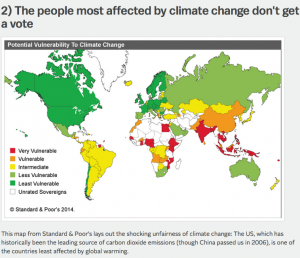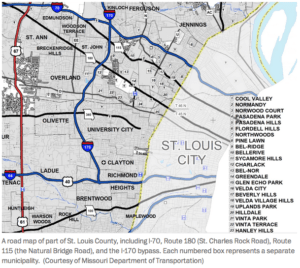 My buddy Bruce Buschel lived through an outage, thank you Verizon, and tells about it.
My buddy Bruce Buschel lived through an outage, thank you Verizon, and tells about it.
So funny, you might wish he’d been out longer.
 My buddy Bruce Buschel lived through an outage, thank you Verizon, and tells about it.
My buddy Bruce Buschel lived through an outage, thank you Verizon, and tells about it.
So funny, you might wish he’d been out longer.
Matt Levine writes about money at Bloomberg View. He’s funny, sensible and worth reading even if you don’t care about SEC disclosures. What?
http://www.bloombergview.com/articles/2014-10-29/high-speed-traders-avoid-low-speed-website
This seems so impossible it is magical.
You can find the list here, along with its lame comments about each book. Here are my comments, probably equally lame and certainly less informed (these are books I haven’t read):
The Brothers Karamazov, Fyodor Dostoevsky: I love Dostoevsky, but he writes big novels about people with lots of big names, and so I haven’t read them all, including this one.
The Known World, Edward P. Jones: Pulitzer Prize winner.
American Pastoral, Phillip Roth: Another Pulitzer Prize winner. I’ve tried Roth a few times and once past Portnoy and Goodbye Columbus and another early one, I could never get started. For instance, the baseball one, the Great American Novel, just bugged me and I gave up a quarter of the way through. My loss I’m sure.
Sport and a Pastime, James Salter: On my list.
A Sense of Where You Are, John McPhee: McPhee is always great, and there is lots I haven’t read.
Invisible Man, Ralph Ellison: Embarrassing.
The Professional, W.C. Heinz: This one is a find for me. I’ve heard of it, but it wasn’t on my radar. Foreword by Elmore Leonard.
Revolutionary Road, Richard Yates: Saw the movie and read Tao Lin’s novel Richard Yates.
The Killer Angels, Michael Shaara: This is a book I’ve always wanted to read.
All the King’s Men, Robert Penn Warren: High on my list of classic American novels to read that I haven’t.
The Wind-Up Bird Chronicle, Haruki Murakami: Just haven’t gotten to Murakami.
Master and Commander, Patrick O’Brian: Everybody loves this one, and all those that follow. I’m sure they are as good as advertised, but I’m not excited.
Plainsong, Kent Haruf: National Book Award winner. Looks awful. I’m almost sure that’s wrong.
Winter’s Tale, Mark Helprin: I have two copies of this in the basement, but I think it’s the cover that makes me think badly of it. Or stop from starting it.
The Spy Who Came In From the Cold, John LaCarre’: I’m not a big fan of spy novels, but I should read this one.
CivilWarLand in Bad Decline, George Saunders: I read Tenth of December recently and I don’t admire or like his ability to render different voices. They seem phony to me. Not badly rendered, but bubbling with condescension and too much cleverness. Writing for readers who like to read writing. Hmm, put that second writing in quotes.
War and Peace, Leo Tostoy: Sure, on my list.
Moby Dick, Herman Melville: This one, too.
Midnight’s Children, Salman Rushdie: I waded into this once. Also tried the one that got him on the kill list. Too fancy for my taste, at least then.
Labyrinths, Jorge Luis Borges: I’ve read some of this book, but not much of it. I have been meaning to spend more time with it.
American Tabloid, James Ellroy: Another overwriter accorded lots of respect, at least partially because he can tell a crackling dark story.
What It Takes, Richard Ben Cramer: I used to read all the books about the making of the president and fear and loathing on the campaign trail and the boys on the bus, but at some point the notion that I was getting something useful started to fade. I chalked that up to maturity, though I thoroughly enjoyed Walter Shapiro’s One Man Caravan, about the pre-race for the president, before things actually got started. Maybe Cramer’s book is worthwhile.
So Long, See You Tomorrow, William Maxwell: I’ve read many Maxwell stories, but not this.
The Great Bridge, David McCullough: There is lots of McCullough worth reading, I’m not sure why this one would be the best, but then I haven’t read it.
Lonesome Dove, Larry McMurtry: Saw the miniseries.
Underworld, Don DeLillo: I read the excerpt that became the shorter book, Pafko at the Wall, and it truly is brilliant. There the novel sits on my wife’s bookshelf, beckoning. Someday, for sure, after Moby Dick.
Savages, Don Winslow: Sounds like fun. Missed the movie last year.
The Orphan Master’s Son, Adam Johnson: I don’t know anything about this book set in North Korea.
Let the Great World Spin, Colum McCann: On the bookshelf, on deck.
Hmm, 29 of 80 is a batting average of .362 of books missed (or .638 of books read). Good to know what’s missing, but they don’t tell half the story. Read on.
Silvia Killingsworth, who is the managing editor of the New Yorker, does a great job describing the problem. Octopuses have some kind of intelligence, they decorate their lairs for instance and make octopus gardens, as Ringo pointed out.
Should that disqualify them from being eaten by humans? It is, as she probes and tells, a typically more difficult problem to solve than saying yes or no, but I’m struck by some obvious points she makes, and some she doesn’t.
The octopuses we eat in New York are not local. They are caught elsewhere and frozen. If we value the reduction of food miles, we shouldn’t be eating octopus in New York City, usually.
The intelligence of the animal probably doesn’t matter that much. Pigs may be smarter than octopuses, or are at least close (though their housekeeping talents are definitely less rigorous), and we eat them. A lot of them. Though maybe that’s because they’re farmed, and we let them lie in mud and shit (enjoying life) for their entire lives, just like they like it.
Octopus isn’t kosher either.
She also does a nice job of describing the horrors and contradictions of the live octopus eating scene in the deliriously magnificent Korean film, Old Boy. But she merely says that the Buddhist actor, Choi Min-sik, said that he said a prayer for each of the animals before biting their heads off. She doesn’t describe how much excitement came with his transgression, but this clip does:
I don’t eat much meat anymore, and I struggle with the why. In part it is practical. My daughter doesn’t eat meat, she identifies with the animals, and I eat dinner with her. She doesn’t object directly if meat is a dish, but preparing two different dinners is extra work. Not eating meat isn’t a problem at home.
But going out and not eating meat is to miss the art of many chef’s work. I once went vegetarian at Union Square Cafe and was blown away by how good it was, but I also sorely missed that piece of barely-cooked tuna they served that is one of the great dishes I’ve ever eaten. Brilliant vegetables I can and do make at home. Well prepared flesh is a treat.
But I’m thinking harder about these special occasions. We source locally, we pay a lot, we serve small portions, but in the end are we better off? I feel like I’m still making value decisions about the eatability of different forms of flesh (lamb versus octopus? shrimp versus cow?) and I’m very unsure that that is the right tack.
The reason I decided to write about this NYer piece was because I see in it an echo of ethics and morality ringing through history. There is a straight (and long) line from slave holding to deciding not to eat octopus. The trick is to track that line into the future. Which behaviors of ours are actually natural and which are rationalized abominations? The sands shift with our history, but doesn’t our understanding that fact compel us to look closely and not accept today’s easiest answers?
 Ethics, of course, are a luxury afforded when we can afford civilization. But that’s good enough for me. When the grid goes down and we start running out of food, the situation will be different, and will offer different answers. Today I think it’s better to eat way less animal flesh. Better for our health, better for the planet, and maybe better for the animals. But if I should land in a real Greek restaurant with a real wood grill, the earthy burn curling through the air like a temptress, will I resist the tenderly and lengthily massaged and prepared grilled octopus?
Ethics, of course, are a luxury afforded when we can afford civilization. But that’s good enough for me. When the grid goes down and we start running out of food, the situation will be different, and will offer different answers. Today I think it’s better to eat way less animal flesh. Better for our health, better for the planet, and maybe better for the animals. But if I should land in a real Greek restaurant with a real wood grill, the earthy burn curling through the air like a temptress, will I resist the tenderly and lengthily massaged and prepared grilled octopus?
Even in New York it would be hard to say no.
There is an article at Vox by Ezra Klein that is well worth reading.
He has seven reasons why America will fail at global warming. If you don’t want to read this, he also has a brief video “conversation” with Te-Nehisi Coates at the top of the page in which he summarizes the points he makes in more detail in the article.
Klein’s argument is pretty straightforward. We’re too late getting started fixing the climate (if it is fixable), and our political processes do a poor job of taking on a problem that requires long-term sacrifices for less-than-immediate gains.
He does a good job, too, of showing how the Republican position on putting a price on carbon has changed radically since John McCain ran for president (and lost). McCain supported it. He also writes about why we can’t expect to engineer our way out of the problem scientifically.
All of this is pretty depressing, but he also does a good job of covering his butt at the end, saying he is pessimistic but not fatalistic. He hopes a solution will emerge.
As I watched him talk with Coates in the video I realized that while Klein was limning the depths of the coming disaster, he was also painting this as an obvious problem for America. But as this map shows, while the US may produce a disproportionate percentage of the world’s carbon emissions, we also have one of the biggest cushions for absorbing climate change. It isn’t really our problem yet, unless we look further into the future. (click to enlarge)
 Klein quotes Matt Yglesias on this: “Very few of us are subsistence farmers. Relatively few of us live in river deltas, flood plains, or small islands. We are rich enough to be able to feasibly undertake massive engineering projects to safeguard our at-risk population centers. And the country is sufficiently large and sparsely populated that people can move around in response to climate shocks.”
Klein quotes Matt Yglesias on this: “Very few of us are subsistence farmers. Relatively few of us live in river deltas, flood plains, or small islands. We are rich enough to be able to feasibly undertake massive engineering projects to safeguard our at-risk population centers. And the country is sufficiently large and sparsely populated that people can move around in response to climate shocks.”
So, the question becomes, how do we convince Americans to make significant changes and sacrifices when the short term threat level isn’t nearly as dire as the long term threat?
Marching felt great, we should do more of that, but we need to keep talking broadly about how the system works and why it isn’t really designed to answer this question. Maybe, I worry, we’re not designed to answer questions like this one as a species, but I’m not pessimistic. I’m pretty sure that we will hammer on this problem, as other ones, with increasing urgency. And while we talk about it and argue about it and elect public officials who recognize the problems, we’ll make progress.
Will it be enough, soon enough? I hope so.
 Alexander Melamid was co-author of a book, with Vitaly Komar, based on public opinion polls about art. The basic idea was to ask people what they wanted to see in paintings, and what they didn’t want to see. And then paint the paintings people said they wanted.
Alexander Melamid was co-author of a book, with Vitaly Komar, based on public opinion polls about art. The basic idea was to ask people what they wanted to see in paintings, and what they didn’t want to see. And then paint the paintings people said they wanted.
The project is archived at Dia.
Melamid’s new project is another stab at the art world’s pretensions. His idea is to add another recycling bin to those we already have. Paper, Plastic, Metal, Compost, Art. He says:
I think we need to open up the recycling station. Our world is polluted by art. It’s millions and millions of objects that are created every day. So imagine there are recycling bins: plastic, paper, art … .
Plumbing has something to do with it.
 Brett Anderson, who lives in New Orleans, is a little obsessed with how much of his state has vanished. He sets out to find out why the iconic boot is no more.
Brett Anderson, who lives in New Orleans, is a little obsessed with how much of his state has vanished. He sets out to find out why the iconic boot is no more.
He’s written a long fascinating story at Medium that looks into the challenges of cartography and a landscape that changes so much, the reasons why through history, and explores the implications for policy and the future.
 This picture is a detail from the picture that ran with the original story I read about making waffles of everything. But the waffles I made looked just like this.
This picture is a detail from the picture that ran with the original story I read about making waffles of everything. But the waffles I made looked just like this.
A guy named Daniel Shumski wrote a book called, brilliantly, Will It Waffle?
I read about the book in Slate.
I also made the zucchini parmesan waffles tonight, based on the recipe at Food52.
I’m looking forward to making spaghetti and meatballs in the waffle iron.
 One of the most important jobs of journalism is to explain the way things work. Or, in the case of St. Louis County and its many municipalities, how they don’t work. Radley Balko explains it all in this long and hugely worthwhile Washington Post story, which does a masterful job of making one feel the aggravating and humiliating context of the Ferguson demonstrations, as well as lining up a surprisingly bureaucratic and appalling series of villains.
One of the most important jobs of journalism is to explain the way things work. Or, in the case of St. Louis County and its many municipalities, how they don’t work. Radley Balko explains it all in this long and hugely worthwhile Washington Post story, which does a masterful job of making one feel the aggravating and humiliating context of the Ferguson demonstrations, as well as lining up a surprisingly bureaucratic and appalling series of villains.
In this case, a history of white flight, a checkerboard of self-serving municipalities that rely on legal fines to pay for themselves, and the slow development of a social culture that results in outstanding bench warrants that stifle the efforts of citizens to get a job or job training, or most egregiously, to run their own businesses.
Click the image to see the map of numbered municipalities larger. Each given its own stretch of highway from which to profit.